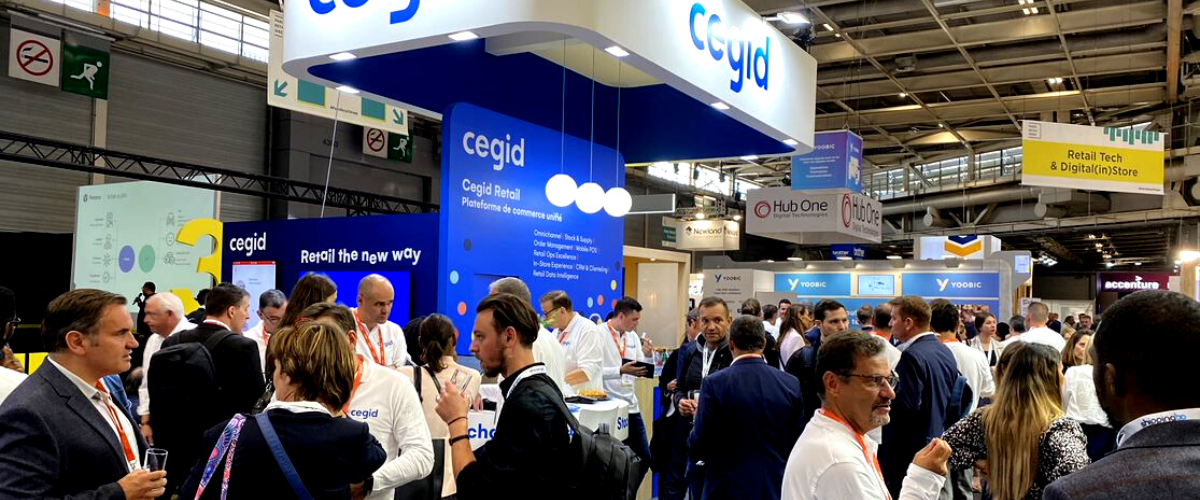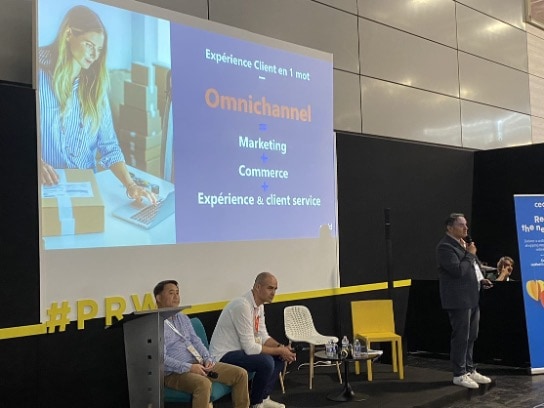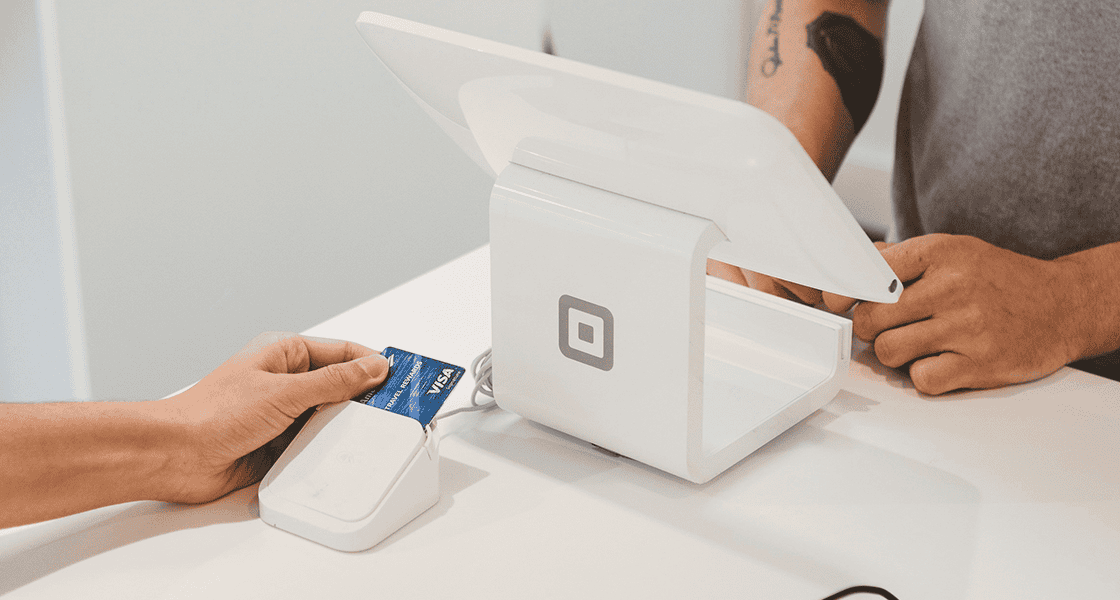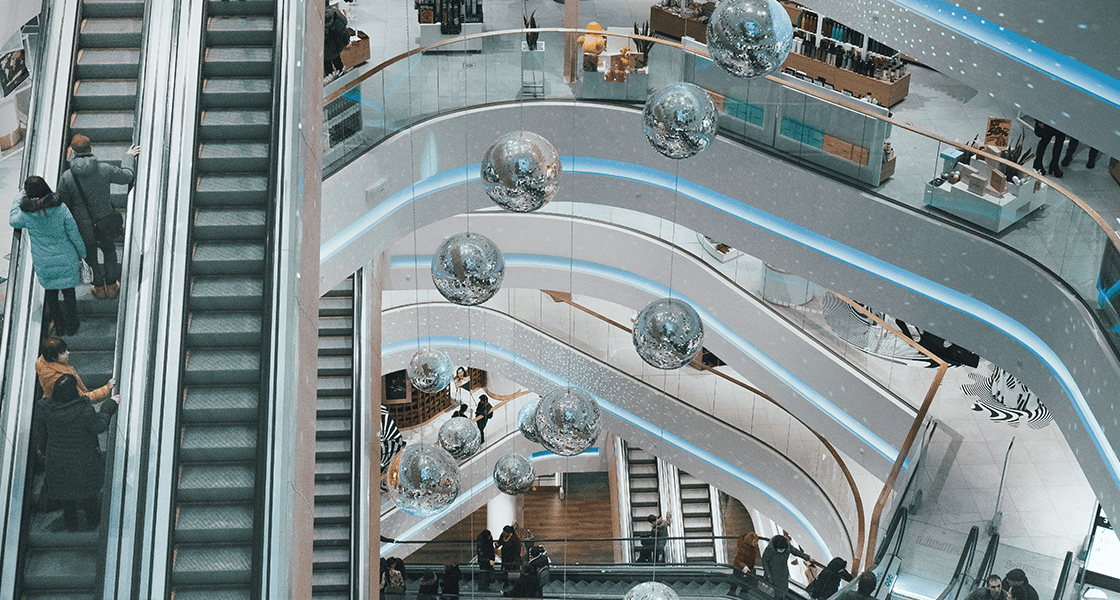Retail & Distribution
Paris Retail Week 2022 unravels changes in retail
17 October 2022

At the recent Paris Retail Week 2022 trade show were a number of recurring topics to keep retailers on their toes, including CSR and how omnichannel retailing will make shopping better for consumers. Cegid was there, along with several partners and clients, to make these necessary transitions as smooth as possible.
Paris Retail Week 2022: Loyalty and promotions on the rise
After a difficult few years, , inflation is now a major worry for the retail industry. According to a global study on world trade presented by Vincent Mayet, Managing Director of Havas Commerce during the opening plenary of the show, around 90% of retailers have been forced to increase prices and 67% have reduced profit margins.
To attract and retain more customers, many retailers plan to deploy new loyalty programs (23% will most likely do so, says the same study) and apply aggressive discounts (17%). Adding more services such as click-and-collect has also proven popular – with two out of three retailers now offering it – as it’s now firmly anchored in the consumer mindset. The Havas study revealed that 26% of global retailers have since strengthened this service and 48% have invested in faster deliveries and returns.

Physical retailers and brands speed up shift towards digital
For many years now, most physical retailers have been faced with the growing impact of online giants and pure-players: like Amazon; or Chinese Alibaba; and notably Shein in the fashion world. For instance, the Havas report found that 69% of retailers in France believe that Amazon is the ideal model to follow.
The online giant is regaining new ground. It boasts 18% of market share in France based on online sales of products (by value, excluding services):
“After a brief pause, it’s 2.3 points better than at the end of June 2022,” said Héléne Janicaud , director of the fashion division at Kantar Worldpanel, who presented the latest e-commerce findings with Fevad (Federation of e-commerce and distance selling) during a presentation on the first day of the show.
Nevertheless, traditional retailers and brands are still managing to maintain online sales levels well above pre-Covid levels: most likely threatening pure-players even more.
” During one quarter of 2022, retailers saw a 32% drop in online sales, compared to a significant rise for the same period during lockdown last year. However, online sales remain 36% above pre-Covid levels as retailers shifted towards digital. “
Marc Lolivier – General manager at Fevad
…but there’s more work to be done
Everyone was talking about the importance of “going digital” on the stands and aisles at the show. Research by Havas found that digital and online projects are considered a number one priority for over half the world’s brands. And one in four believe that digital strategies are the most effective way of increasing turnover in future, with low prices and special promotions close behind.
What’s more important than ever before, is delivering an exceptional in-store experience worldwide. And that requires agile, omnichannel platforms and solutions that are easy to use while on the move. Cegid showcased its latest Cegid Retail Store Excellence solution on the stand, as part of an integrated range of Cegid Retail solutions: including improving both the customer and employee experience following the recent acquisition of UK specialist StorIQ in June.
The Metaverse appeals to the young
Retailers and brands are facing new challenges in how best to approach emerging technologies like Web3 and the Metaverse, which some are already starting to experiment with. A round-table discussion on this topic, organised by Accenture, involved French department store retailer Printemps, which has experimented with having a virtual store in a mini Metaverse:
“Embracing the Metaverse can mean opening up to new markets and appealing to a younger audience looking to be part of a more creative and animated community,” said Matthieu Staat, Chief Omnichannel Officer at Printemps.
He even believes that the technology could help improve the industry’s environmental credentials: for instance, by allowing retailers to gauge public opinion before manufacturing products at scale and thus reducing waste.
The future of retail in the Metaverse
To find out moreSecond hand is crucial
Selling second-hand goods was another popular topic at the show, along with everything relating to CSR and environmental issues. According to an e-commerce study on the circular economy by Fevad and KPMG, over 80% of online shoppers have already bought or sold second-hand products. There’s no denying that consumers are now much more mindful of their carbon footprint, using their purchasing power to change corporate behaviour for the better.
72 % of French people are committed to more responsible consumption
There’s been significant growth in the second-hand market, valued at roughly 7 billion euros in France, up 140% from 2019 to 2021. It covers everything from second-hand clothing to mobile phones and leisure products. The majority of buyers are either Millennials or Generation Z, so it’s a trend that’s likely to stay. They tend to care more deeply than previous generations about the damaging impacts of conspicuous consumption.
Research suggests that the traditional consumption model – based on purchasing and ownership – is slowly declining, giving way to a model based more on usage. A Fevad study from 2021 found that 72% of French people were committed to more responsible buying and consumption. And nearly one in five online shoppers opted for rental products.


